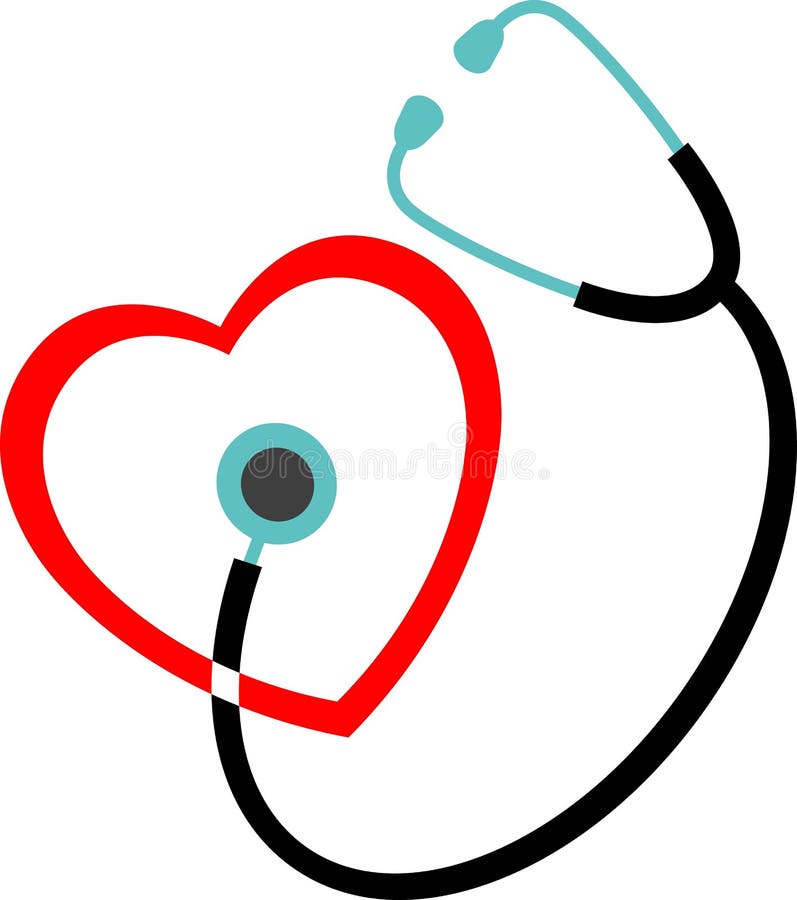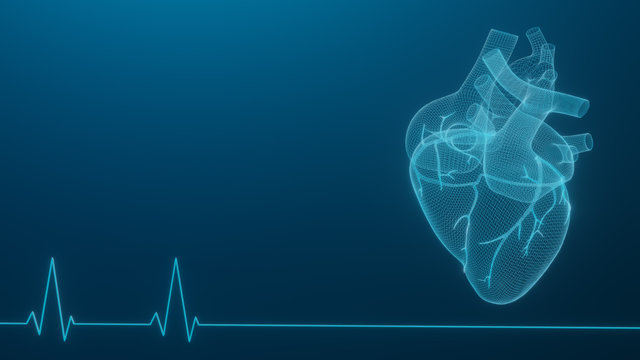Recognizing the Value of Cardiology in Modern Healthcare Solutions
Cardiology plays a vital duty in modern medical care, especially as heart condition proceeds to be the leading cause of mortality worldwide. Advancements in diagnostics and treatment have actually changed client care, enabling earlier interventions and improved end results. In addition, the change in the direction of precautionary cardiology encourages people to manage their health proactively. As technology proceeds to evolve, the integration of ingenious solutions may better redefine cardiology's effect on public wellness, motivating a better exam of arising fads and their effects.
The Occurrence of Cardiovascular Disease and Its Influence On Public Health And Wellness
Although heart condition continues to be the leading reason of death around the world, its influence prolongs much past specific patients to affect public wellness systems and economic climates. The high frequency of cardiovascular disease puts a significant stress on healthcare resources, necessitating enhanced financing for prevention, recovery, and therapy programs. Public wellness campaigns must resolve danger variables such as weight problems, cigarette smoking, and inactive way of livings, which contribute considerably to the increasing occurrence of heart conditions.Moreover, the financial worry associated with cardiovascular disease is immense, including not only direct medical expenses yet additionally indirect costs connected to lost efficiency and early death. Neighborhoods encounter obstacles in managing these expenses, often causing disparities in medical care gain access to and end results. As the populace ages and lifestyle-related dangers remain to rise, the urgency for effective cardiology treatments ends up being extremely important. Dealing with heart condition is not just a matter of private health and wellness but also an essential public health and wellness concern.
Breakthroughs in Cardiac Diagnostics and Imaging Techniques
Current innovations in cardiac diagnostics and imaging techniques have revolutionized the field of cardiology, improving the capability to spot and keep track of heart problem. Techniques such as cardiac MRI, CT angiography, and echocardiography have actually become significantly innovative, providing in-depth photos of heart frameworks and features. These modalities enable the early identification of problems like coronary artery illness, cardiac arrest, and valvular disorders.Moreover, innovations in non-invasive diagnostics, such as wearable modern technology and remote monitoring tools, have equipped patients and healthcare providers. These tools assist in real-time monitoring of heart rhythms and other important signs, resulting in prompt treatments. In addition, fabricated intelligence is being incorporated into imaging evaluation, improving precision and effectiveness in diagnosis.
Developments in Therapy Choices for Heart Issues
Recent advancements in cardiology have caused considerable technologies in treatment alternatives for heart disease. These consist of innovative surgical techniques that enhance procedural outcomes and emerging drugs that offer new avenues for treatment. As the field develops, these developments play an essential role in boosting client treatment and outcomes.
Advanced Surgical Techniques
Technologies in medical strategies have actually changed the landscape of cardiology, using new hope for individuals with heart disease. Minimally intrusive procedures, such as catheter-based interventions, have actually substantially minimized recuperation times and hospital stays. Techniques like robotic-assisted surgery enhance precision, permitting surgeons to browse intricate anatomical frameworks with higher accuracy. Innovations in imaging modern technology facilitate real-time visualization during procedures, boosting outcomes. Transcatheter aortic shutoff substitute (TAVR) exhibits an advancement in dealing with aortic constriction, making it possible for shutoff substitute without open-heart surgical procedure. In addition, hybrid strategies that combine medical and catheter-based approaches offer customized remedies for numerous cardiac concerns. These innovative surgical methods not just boost patient security however also increase therapy alternatives, emphasizing the vital function of development in contemporary cardiology practices.
Arising Medicines and Therapies
As the landscape of cardiology proceeds to progress, arising medicines and therapies play an essential function in improving treatment choices for heart conditions. Technologies such as unique anticoagulants and advanced lipid-lowering representatives have actually changed the administration of cardiovascular conditions, significantly decreasing client morbidity and death. In addition, the development of gene treatments and regenerative medicine provides appealing methods for dealing with problems previously deemed incurable. Medical tests are continuously revealing the effectiveness of these treatments, pressing the limits of traditional treatments. The integration of electronic health and wellness technologies facilitates tailored medicine, enabling for customized treatment strategies based on hereditary and way of living factors. Collectively, these innovations underscore the vibrant nature of cardiology, boosting patient outcomes and redefining requirements of treatment in modern-day medical care.
The Role of Preventive Cardiology in Patient Care
Preventive cardiology plays a vital role in patient care by concentrating on the identification of risk elements that contribute to heart illness. Through way of life alteration techniques and early detection strategies, doctor can efficiently reduce the occurrence of cardio events - Cardiology Jupiter. This proactive method not just improves patient end results however likewise promotes long-lasting health
Threat Factor Recognition
While cardiovascular conditions continue to be a leading reason of morbidity and mortality worldwide, reliable danger element recognition functions as a foundation of preventive cardiology. Determining threat aspects such as high blood pressure, hyperlipidemia, family, and diabetic issues history is essential for very early treatment. Medical care specialists make use of numerous evaluating methods to examine these factors, enabling customized preventive steps. Additionally, comprehending a person's way of life options, such as smoking cigarettes and physical inactivity, further notifies threat evaluations. This thorough evaluation allows medical professionals to establish tailored treatment strategies targeted at mitigating dangers. By focusing on risk element identification, medical care systems can enhance patient end results and decrease the overall burden of heart diseases, inevitably adding to boosted public health techniques and resource appropriation.
Way Of Living Modification Approaches
A wide variety of researches highlights the essential role of lifestyle alteration approaches in reducing heart disease threat. These strategies incorporate nutritional adjustments, enhanced physical activity, smoking cessation, and weight monitoring. By embracing a heart-healthy diet regimen abundant in fruits, vegetables, entire grains, and lean proteins, people can reduce cholesterol degrees and high blood pressure. Routine physical task enhances the heart and boosts overall cardio health. In addition, quitting smoking cigarettes significantly decreases the danger of heart problem and improves healing prices for those with current problems. Weight management better adds to cardiovascular health by reducing other risk elements such as diabetes mellitus and high blood pressure. Carrying out these way of living changes not just promotes private health however additionally works as a keystone of precautionary cardiology in client treatment.
Very Early Discovery Strategies
Way of life alterations significantly add to minimizing useful reference cardio condition risks, but advice they are most efficient when coupled with early discovery strategies. Precautionary cardiology highlights the importance of determining prospective heart issues prior to they rise into severe problems. Strategies such as high blood pressure surveillance, cholesterol testing, and progressed imaging modern technologies like echocardiograms play vital duties in evaluating cardio health. Biomarkers and hereditary screening likewise enhance the precision of very early detection, permitting tailored precautionary strategies. Normal heart danger examinations empower health care companies to interfere proactively, possibly stopping cardiac arrest and strokes (Cardiology Jupiter). By integrating these early discovery approaches into routine care, clients can gain from timely way of life treatments and targeted treatments, ultimately boosting and boosting end results lifestyle
Integrating Modern Technology Into Cardiology Practices
As developments in modern technology proceed to reshape different fields, the combination of ingenious devices and systems into cardiology methods has come to be important for boosting patient care and end results. Telemedicine platforms allow cardiologists to check individuals remotely, boosting accessibility to care while reducing the problem on health care centers. Wearable gadgets, such as smartwatches, allow constant heart rate monitoring, signaling both clients and medical professionals to prospective problems in real-time. In addition, expert system (AI) is being made use of to analyze substantial quantities of cardiac data, assisting in very early diagnosis and customized treatment plans. Advanced imaging methods, including 3D echocardiography, enhance visualization of heart structures, bring about more exact interventions. Electronic health records (EHRs) enhance patient info management, making sure that cardiologists have instant accessibility to important information. Together, these technical innovations are changing cardiology, promoting proactive administration and improved wellness results for people with cardiovascular conditions.
The Importance of Client Education and Involvement
Individual education and involvement play a pivotal function in the management of cardiovascular health. By gearing up people with knowledge regarding their problems, therapy choices, and way of life adjustments, doctor encourage people to take an energetic duty in their care. This aggressive approach can result in enhanced adherence to suggested medications, dietary adjustments, and workout regimens, ultimately minimizing the risk of complications.Engagement additionally fosters a strong patient-provider partnership, urging open communication and trust. When clients really feel educated and included, they are more most likely to voice concerns and ask questions, which can cause far better medical end results. In addition, instructional sources, such as workshops or digital platforms, can improve understanding and promote self-management approaches. Generally, prioritizing individual education and learning and engagement is important for improving cardiovascular health and wellness, enhancing lifestyle, and minimizing health care expenses related to heart diseases.
Future Fads in Cardiology and Their Potential Influence

Regularly Asked Concerns
What Way Of Living Changes Can Lower Heart Problem Threat?
The present inquiry addresses lifestyle changes that can considerably lower heart problem threat. Dr Garcia. Embracing a balanced diet, taking part in routine physical task, keeping a healthy and balanced weight, managing stress, and staying clear of cigarette can notably enhance cardio health
Exactly How Can I Identify Very Early Indications of Heart Problems?
Identifying very early indications of heart troubles entails surveillance signs such as breast discomfort, lack of breath, exhaustion, and irregular heart beat. Prompt recognition of these indications can motivate necessary medical examination and intervention for much better outcomes.
What Are the Distinctions Between Cardiologists and Cardiac Surgeons?
The distinctions in between cardiologists and cardiac surgeons hinge on their functions; cardiologists largely manage and diagnose heart disease through non-invasive approaches, while cardiac doctors execute medical treatments to correct architectural heart concerns. Each plays an important, distinctive role.

Just how Commonly Should I Obtain My Heart Health Checked?
The frequency of heart medical examination varies based on specific threat aspects. Normally, grownups need to go through assessments every one to 2 years, while those with status quo might call for more regular assessments as encouraged by medical care look at this site professionals.
What Function Does Genes Play in Heart Condition Risk?
Genes greatly influences cardiovascular disease threat, with domestic patterns indicating inherited conditions. Details genes can predispose people to high blood pressure, cholesterol problems, and various other cardiovascular issues, highlighting the value of hereditary testing in examining heart health and wellness. Heart illness continues to be the leading cause of death globally, its influence extends far past private patients to influence public wellness systems and economic situations. Public health initiatives have to attend to danger elements such as weight problems, cigarette smoking, and inactive way of lives, which contribute significantly to the rising incidence of heart conditions.Moreover, the financial problem associated with heart disease is immense, encompassing not only straight medical costs however also indirect expenses connected to lost productivity and early mortality. Precautionary cardiology plays a vital role in client care by focusing on the identification of threat variables that add to heart condition. Artificial intelligence (AI) and maker knowing are enhancing diagnostics and individual surveillance, enabling early discovery of heart diseases. The differences in between cardiologists and heart specialists lie in their roles; cardiologists primarily manage and diagnose heart conditions with non-invasive approaches, while cardiac specialists perform surgical procedures to correct structural heart concerns.